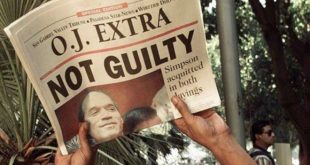PhillyMag.com reported on the lack of mainstream media coverage for the movie (in theaters today) about murderer Kermit Gosnell, who’s in prison for the rest of his life. He was convicted of murdering three babies born alive after botched abortions and a woman during an abortion.
We searched high and low for reviews of Gosnell: The Trial of America’s Biggest Serial Killer among the usual suspects, but reviews by mainstream critics for the Gosnell movie are scarce. Nearly non-existent, actually.
As of Friday morning, the only Gosnell movie review that we turned up using Google and the newspaper database Nexis is this one in the Los Angeles Times.
Film critic Michael Rechtshaffen remarks that the Gosnell movie could “never be mistaken for having a liberal bias,” later using terms like “sanctimonious” and “sensationalistic” to describe it.
Gosnell: The Trial of America’s Biggest Serial Killer was made on a small budget and with scant support from Hollywood. It’s a wonder abortion-advocating actors and other industry leftists didn’t run off the movie’s actors and crew.
The movie stars Dean Cain as a police detective who raided Gosnell’s house-of-horrors clinic, and conservative actor Nick Searcy, who also directed the film.
The Federalist noted that the filmmakers, Phelim McAleer and Ann McElhinny, crowdfunded the movie. Kickstarter repeatedly removed their campaign when abortion advocates complained, then “decided to bend” their rules after the filmmakers defended it. The filmmakers eventually took their business elsewhere. Their campaign on IndieGoGo raised a record $2.37 million.
McAleer and McElhinny had to deal with other problems associated with making their movie about a man dubbed the world’s biggest serial killer for murdering babies who had the bad grace to survive abortion attempts.
Even after securing funding and actors willing to deal with the complicated and politically dangerous topics in the movie, its obstacles to production weren’t over. Creating a film is only part of getting it before consumers, and finding a distribution company proved just as difficult as the initial fundraising. Although the film was finished in October 2015 and release initially planned for 2016, it ultimately took another two years to release the film.
“Each one [distributor] would say: ‘Great, important film—just too controversial for us,’” McAleer said in a phone interview. In addition, the judge who had presided over Gosnell’s trial sued them to stop the release, adding additional delays. The lawsuit was settled, allowing the film to continue through the distribution process to its recent release.
Here’s a list of theaters for the film.
 Black Community News News and Commentary for Christians
Black Community News News and Commentary for Christians



